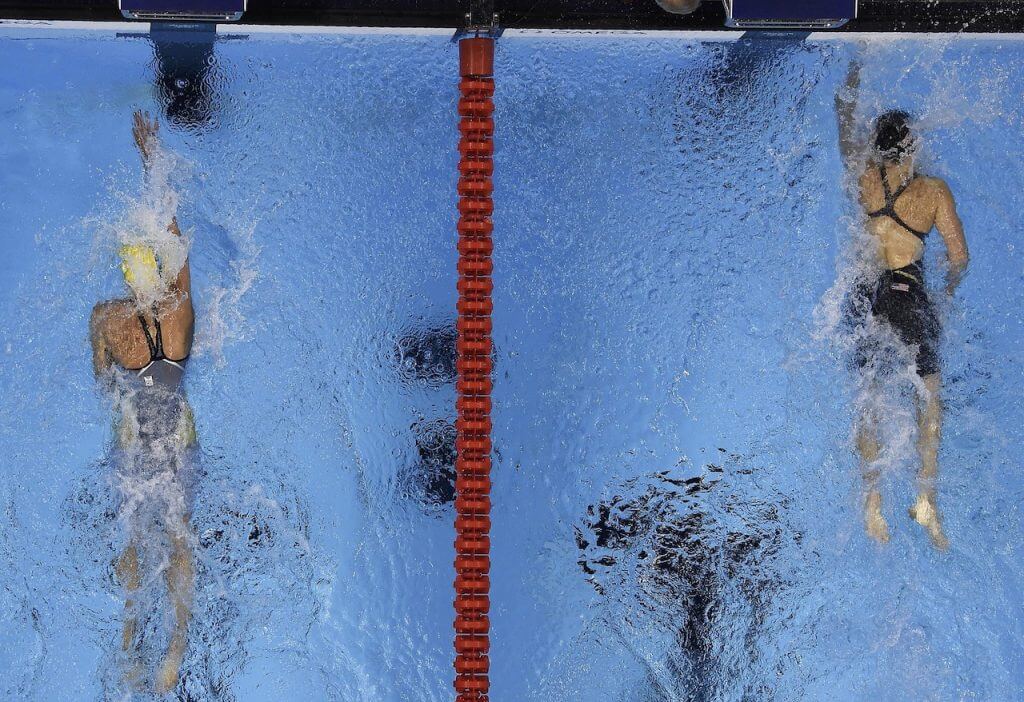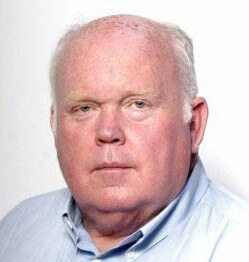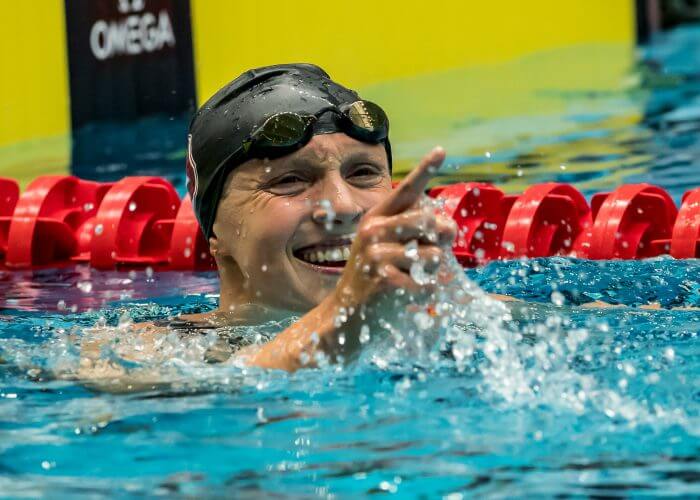Bill Sweetenham’s Top Tips For A Winning Edge In The Battle Of Performance Sport In A Pandemic

Bill Sweetenham, the Australian coach mentor and performance leader, offers his top tips on winning at a time of pandemic, shutdown, lockdown, closures, re-opening and shifting of goal posts and datelines for swimmers. He was asked by various coaches from around the world for his views on how the COVID-19 coronavirus pandemic affected the preparation of swimmers. As pools and programs re-open, new datelines and goals are set at a time of limited or no opportunities to compete. How to proceed, what are the approaches that will pay the highest dividends? Here is Sweetenham’s take on where swimming, swimmers and coaches find themselves and what they might do about it.
Commentary by Bill Sweetenham

Bill Sweetenham
Pandemic and the performance athlete – be it corporate or sport
As an outcome of 50 years of experience and close observations I can confidently assert, given the knowledge gained by this performance, experience-based knowledge that successful people respond to situations quite similarly and especially when pressure and chaos is included in the mix.
Not always – but mostly!
Some of the more positive and significant traits are these:
Winning Mindsets – Training To Compete & Win
- They prepare and train in order that they can compete while understanding that the higher level of training and preparation the more productive and positive the outcome. They train to compete and win.
- These rare individuals are developed through this process and systematic and progressive commitment to optimal performance ahead of potential and an obvious and winning point of difference ahead of their opposition.
- They, through competition. develop a winning competitive edge. They utilise competition to develop accelerated rate of learning to win. Whilst experience is vital and beneficial, winning experience delivers much more than just experience alone. These people than adapt an extremely valuable competitive advantage. This cannot be achieved without commitment to competition.
- Competition is the foundation of all learning. Competition from an early age develops the ability to be predatory in seizing opportunities across all levels of life. Competition is the class room of winning.
- Observe the world’s great performers and how they respond to both winning and failure. They learn in failure and respond positively from this rare experience. Competition with any negative encounters must never become habitual. Competition is the foundation of applied, accurate and specific-to-training education and preparation.
- Optimal performance ahead of potential is delivered first and identified in training and preparation.
A Goal, It’s Dateline & Measuring Improvement & Achievement
- I have also learnt that performances are respected and driven compulsively by the trained performer to address both IMPROVEMENT and ACHIEVEMENT in every competitive field of endeavour.
- Performers relate to precise measurable and monitored IMPROVEMENT in preparation to the expected, planned ACHIEVEMENT in competition.
- There must exist a goal performance and date of delivery should the goal be achieved.
- A gap process must be clearly accepted by a method and adopted by all clients and stakeholders of the process: = where are we; where do we wish to deliver and how will this be achieved ?
- Many in sport train times only to find they are judged by superior or inferior competitiveness in the final outcome. Train competitiveness!
Mind the Gap
- Have a goal performance and goal date in order to understand this gap process i.e., where are we (how far are we removed from the desired goal outcome ); where do we want to go; how are we going to arrive; and when do we HAVE to arrive? All of these questions depend on a superior competitive winning edge. Read the above two points again.
Learning external to the field of endeavour!
Having been frustrated with the lack of opportunity to learn within my field of endeavour (i.e., nothing of anything new or innovative) I turned to growth opportunities external to my field of endeavour. I hope you can read my articles on the Art of Movement (NB: Sweetenham has penned three articles on the theme, which Swimming World will endeavour to bring to you – Ed). My first love in life in my development was mathematics. I was very good at mathematics (no study required ) at an early age. During the last 20 plus years I turned to my true love of art and mathematics, a great decision on my part. I studied mathematics at every opportunity! All of my learning has come from mathematics, art, ballet, ATHLETES and science in the 20 years.
Here is the most important lesson that I learnt:
“… a good teacher does not teach facts, he or she teaches enthusiasm, open mindedness and values” – Gian-Carlo Rota, an Italian-American mathematician and philosopher.
I continue to try to live to these values. Add competitiveness to this equation or simply add competitiveness to the value section. I believe if you can do this you are going to be the right, best and good person to both teach and coach your family and all who embrace your teachings. I wish to be the most advanced person to deliver these values. To achieve this I must understand, have empathy for the heart and mind of all those around me.

Katie Ledecky – Photo Courtesy: Peter H. Bick
One Chance – Seize It!
With nearly all situations in life and profession “ you only have one chance”. So,
- Be superior in attitude and be invincible in skill (athletes, coaches and others)
- Be prepared above the organisation to be mentally and physically ready to adjust to changing and an ever-challenging landscape and competition field of focused exposure.
Winners have an “adaptive” mind set and winning point of difference. This current pandemic will test each of us to adapt very quickly. The pandemic will define us individually and as a group and nation.
- Time to be a visionary leader.
- Time to be a torch for all in the ever changing environment that you live.
For most of us we will have at least 3 areas of accountability and responsibility: a professional life; a recreation/ sporting life; and, first and foremost, a family life. All are extremely valued and important and inter dependent in the majority of cases.
- Ideally we wish performance and perfection in all 3 areas.
- Whilst we expect of ourselves to be recognised as high achievers in all 3 areas, we remain challenged in these areas.
- If one area fails for most it is very likely this will negatively affect the other 2 areas.
- Many people value each area differently, placing more importance on one or the other.
- We must strive to engage optimal levels of achievement and improvement across the spectrum of all 3 areas.
- There must be positive emotional support and interaction with a very diverse group of people across personal, home and family life; professional and work life; and sporting and recreational life. All positively balanced and supportive of each other.
Experience and history states very clearly that in hard times, hard people with strong beliefs and preparation prosper in this environment just as financially struggling people will achieve where other more affluent operators will find themselves out of step and struggling.
The chance of an Olympic Games in 2021 is slight at best.
The Pandemic In Sport – 8 Top Tips
- Compete every 3 weeks with every third week made a “competitive week” (re-read the points on winning mindsets)Minimum volume with maximum racing. Example being: award each international athlete 12,000 FINA points (1,000 is the World record in each event) then have the athlete reduce these points to zero by competing in Olympic time trials morning and afternoon: the athlete who can reduce the 12k points to zero with the least number of Olympic-distance competitive exposures wins. Try using short-course point scores and achieve the same outcome long-course.
- Detail and list the athletes top 24 training practices (historically since the last major competitions) during the last 12 months. List them 1 through 24 and include the meal prior to the listed practice. Then inform the athlete they can choose any of these practices at any training opportunity and then execute it with improvement – i.e., faster repeats; shorter or longer rests, fewer strokes and more efficiency; more efficiency and speed on, into and out of walls etc , etc.
- Have the athlete look at the log and identify what they believe are their 24 best practices. Do the same with warm ups and swim downs (can be separate to the 24 best sets identifications ).
- Global repeat-performance coaches understand the connect between warm-ups into swim downs and vice-versa and HOW these can positively or negatively impact the final race-preparation phase. No better time than in a pandemic to experiment and design with the athlete the connect warm -up, swim-down and tapering experience.
- Compete in as many events and meets that are possible.
- Design an individual and superior specialised program for each athlete: land, gym and swim. Address individualisation and specialisation issues. Develop a COMPETITIVE team and individual gym program. Get stronger and faster.
- Grant more Individual-athlete time allocation. Lead the athlete to a much more independent approach.
- Develop attitude and character by understanding talent does not always have character and attitude however attitude and character will ALWAYS have talent! Know the difference. Pandemic is a great opportunity to work on these areas.
In conclusion, this is a time to identify the athlete and coach who have character and attitude to support a superior adaptive mindset. They are the winners who can achieve and improve outcomes in advance of potential. These are easily identified in hard times.
Bill Sweetenham
- All commentaries are the opinion of the author and do not necessarily reflect the views of Swimming World Magazine, the International Swimming Hall of Fame, nor its staff.




Solid advice, thanks Bill.